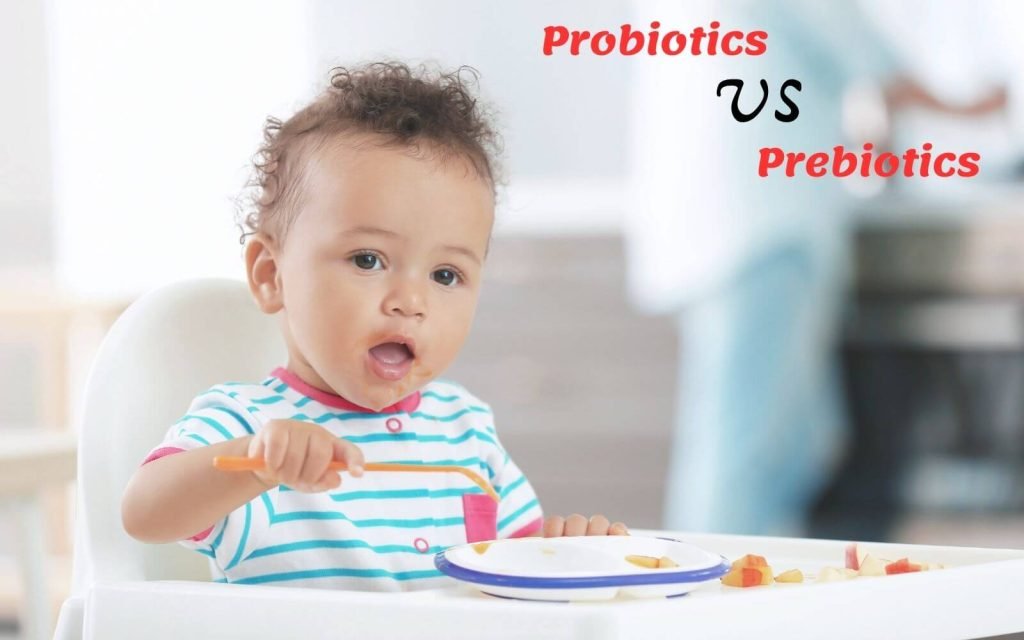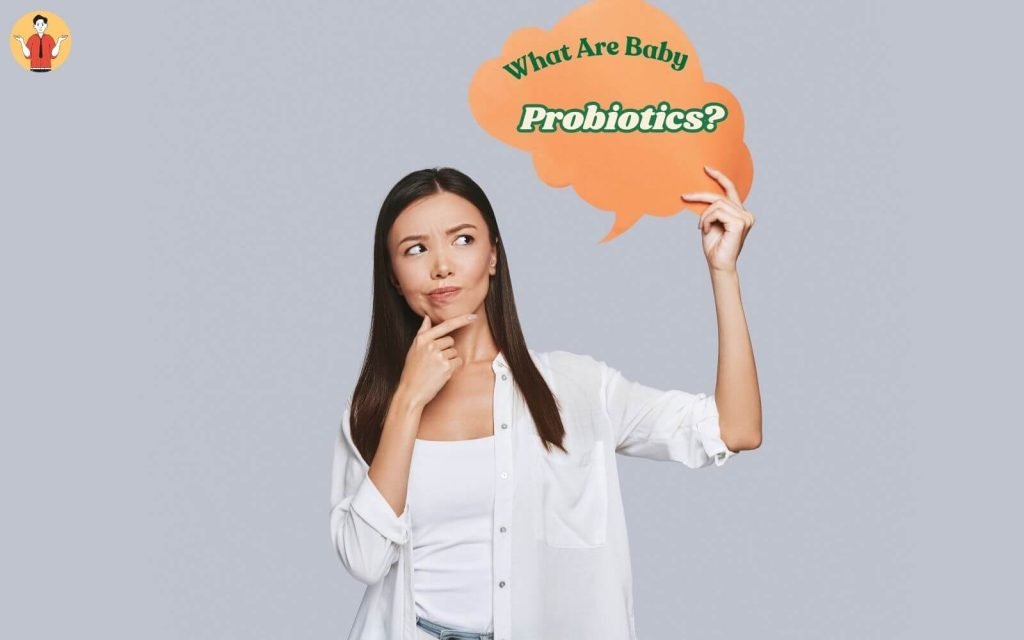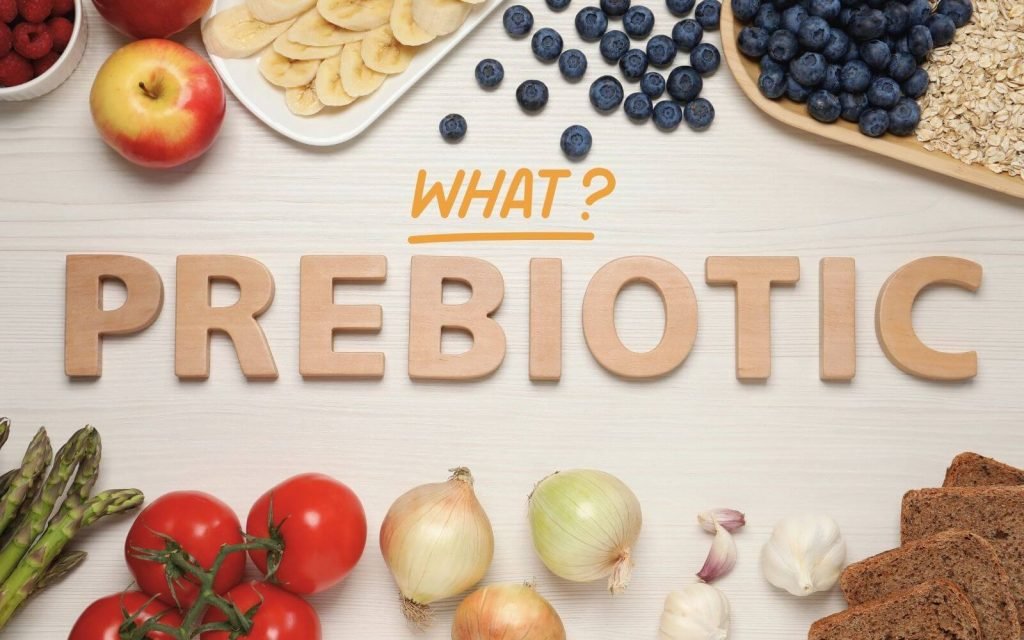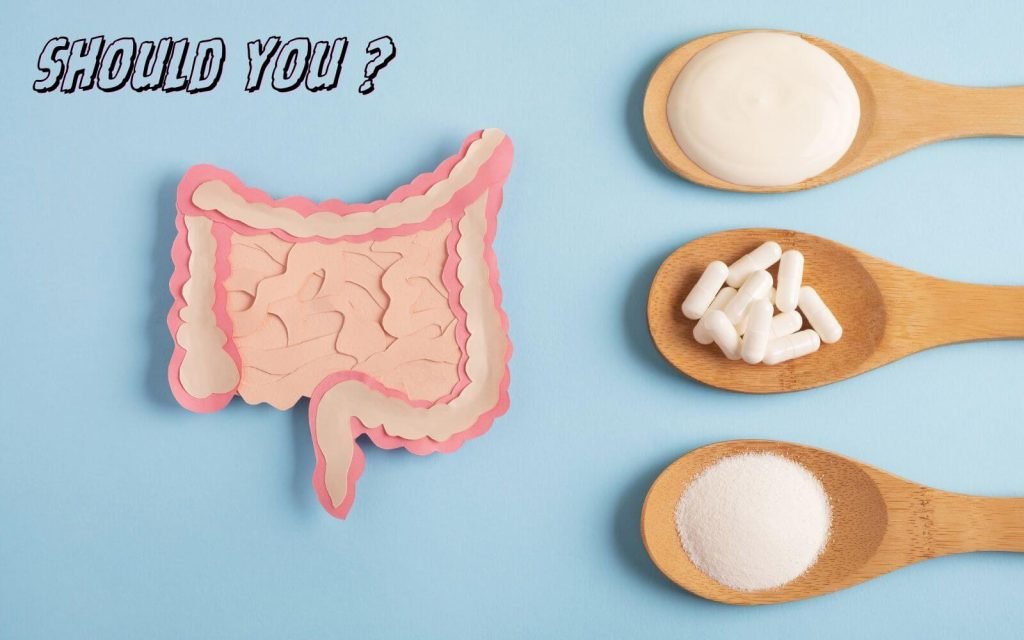Baby Probiotics vs Prebiotics: Which One Truly Supports Your Baby’s Health Better?

As a parent, you want to make the best choices for your baby, especially when it comes to their nutrition and digestive health. One area that has gained a lot of attention recently is the role of probiotics and prebiotics in promoting a healthy gut.
You might have heard these terms in discussions about improving gut health, but what do they mean? More importantly, should you focus on one over the other for your little one?
In this article, we’ll explore the differences between baby probiotics and prebiotics, their specific health benefits, and how they work together to support your baby’s gut microbiome.
Key Takeaways – Baby Probiotics vs Prebiotics
- Probiotics are living microorganisms that introduce beneficial bacteria into the gut.
- Prebiotics are types of dietary fibers that serve as food for the good bacteria already present in the gut.
- Both probiotics and prebiotics play an important role in supporting a baby’s digestive health, immune system, and overall well-being.
- Combining prebiotics and probiotics creates a synbiotic effect, where they work together to optimize gut health.
Let’s take a closer look at how probiotics and prebiotics can benefit your baby’s gut microbiota.
What are Baby Probiotics?

Probiotics are living microorganisms, often referred to as friendly bacteria, that can be found in various foods and probiotic supplements. They help boost the number of good bacteria found in the gut, which is crucial for maintaining a balanced gut microbiome.
For babies, these probiotics may help with:
- Improving digestion: Probiotics help break down food more effectively, reducing common issues like gas, colic, or constipation.
- Supporting the immune system: A large portion of the immune system is connected to the gut. Introducing probiotics may enhance immunity and lower the risk of allergy or eczema in babies.
- Reducing digestive discomfort: Studies suggest that probiotics work to ease symptoms of diarrhea, especially when used after antibiotics that can disrupt gut flora.
Common Sources of Baby Probiotics
- Breast milk: Contains natural probiotics and is essential for developing a baby’s gut microbiome.
- Formula fortified with probiotics: Some infant formula brands include probiotics to help mimic the natural gut support provided by breast milk.
- Probiotic supplements: Available as drops or powders, these supplements are specially formulated for babies and are designed to support digestive health.
- Yogurt: Although typically introduced later, yogurt is a good source of probiotics for older babies and toddlers.
What are Prebiotics for Babies?

Unlike probiotics, prebiotics are not living organisms. They are a type of dietary fiber that the body cannot digest. Instead, prebiotics help by feeding the good bacteria in the gut, helping them thrive and multiply.
In other words, if probiotics are the beneficial bacteria in the gut, prebiotics act as their food source, ensuring that these good bacteria stay healthy and effective.
Benefits of Prebiotics for Babies
- Support a healthy gut: Prebiotics encourage the growth of good bacteria found in the gut, which is key to maintaining a balanced gut environment.
- Improve digestion: By supporting the growth of beneficial bacteria, prebiotics can help prevent issues like constipation and promote smoother digestion.
- Boost the immune system: A healthy gut leads to a stronger immune system. Prebiotics have been shown to help babies build immunity and reduce the risk of health problems like eczema and allergy.
- Reduce inflammation: The growth of good bacteria, supported by prebiotics, can help lower gut inflammation, which is connected to many medical conditions.
Common Sources of Prebiotics
- Breast milk: Prebiotics are naturally present in breast milk, especially in the first few days after birth (colostrum).
- Formula containing prebiotics: Like probiotics, some formula brands are fortified with prebiotics to support the gut health of formula-fed babies.
- Prebiotic-rich foods: Once babies start eating solid foods, many high-fiber foods such as bananas, oats, and whole grains are rich in prebiotics and can support their digestive system.
Baby Probiotics vs Prebiotics: What’s the Difference?

Both probiotics and prebiotics are essential for your baby’s digestive health, but they work in different ways. Here’s a quick comparison:
| Probiotics | Prebiotics |
|---|---|
| Live beneficial bacteria | Non-digestible dietary fibers |
| Found in breast milk, formula, and probiotic supplements | Present in breast milk and prebiotic-rich foods |
| Help to introduce more good bacteria | Prebiotics help feed and nourish gut bacteria |
| Reduce diarrhea and eczema symptoms | Improve digestion and reduce constipation |
| Support a healthy gut microbiome | Encourage the growth of gut bacteria |
Should You Focus on Probiotics, Prebiotics, or Both?

It’s important to note that probiotics and prebiotics work best when combined, forming a synbiotic relationship. This means that while probiotics introduce healthy bacteria into your baby’s gut, prebiotics help those bacteria thrive and support a healthy gut environment. Together, they can optimize your baby’s gut health and boost their immune system.
When to Introduce Probiotics or Prebiotics
If you’re wondering when and how to introduce these into your baby’s routine, the best time is usually when you notice signs of digestive discomfort, such as constipation, gas, or diarrhea. Always consult your pediatrician before starting any new supplement.
How to Give Prebiotics and Probiotics to Babies
- Breastfeed: If you’re breastfeeding, your baby is already getting a natural dose of both probiotics and prebiotics through breast milk.
- Use of probiotics in formula: Many formula options contain probiotics and prebiotics, which can help mimic the gut health benefits of breast milk.
- Probiotic supplements: There are probiotic supplements specifically designed for babies that can be mixed into breast milk, formula, or given directly.
Summary
When considering baby probiotics vs prebiotics, both are vital for supporting a baby’s gut microbiota and overall well-being. Probiotics introduce good bacteria into the gut, while prebiotics help those bacteria thrive. Together, they play an important role in supporting a baby’s immune system, digestion, and health. Always talk to your pediatrician before starting any new supplement to ensure your baby gets the best possible care.
Frequently Asked Questions
1. Can Probiotics and Prebiotics Be Given Together?
Yes, combining both can create a synbiotic effect, boosting the beneficial bacteria in your baby’s gut and improving overall digestive health.
2. What Foods Naturally Contain Prebiotics?
Many foods, especially whole grains and prebiotic-rich foods like bananas and oats, are natural sources of prebiotics. However, for babies, breast milk and fortified formula are the best sources.
3. How Do Probiotics Help With Constipation?
Probiotics work by increasing the number of good bacteria in the gut, which can improve digestion and ease constipation.
4. Can Probiotics Help Reduce Eczema in Babies?
Yes, some studies have shown that probiotics may help reduce the risk of eczema in babies, especially when introduced early on.
5. Should I Give My Baby Prebiotics if They’re Breastfed?
Breast milk naturally contains both probiotics and prebiotics, so your baby is already getting the gut support they need if you’re breastfeeding.





